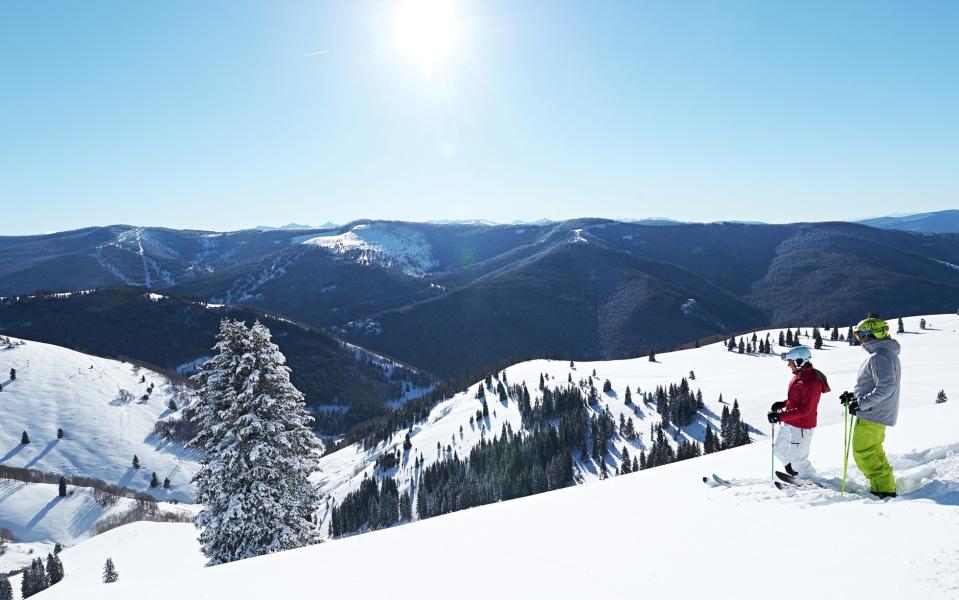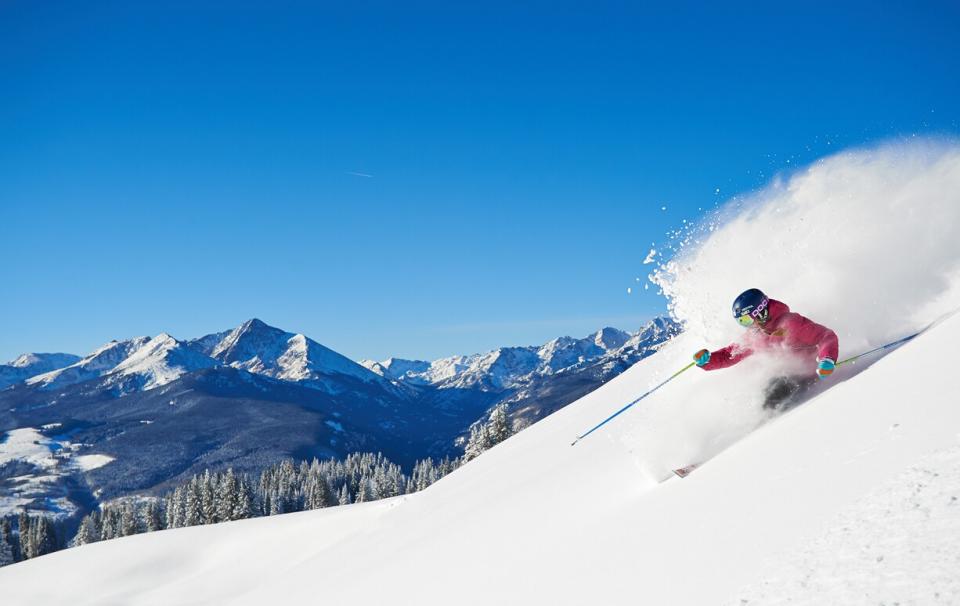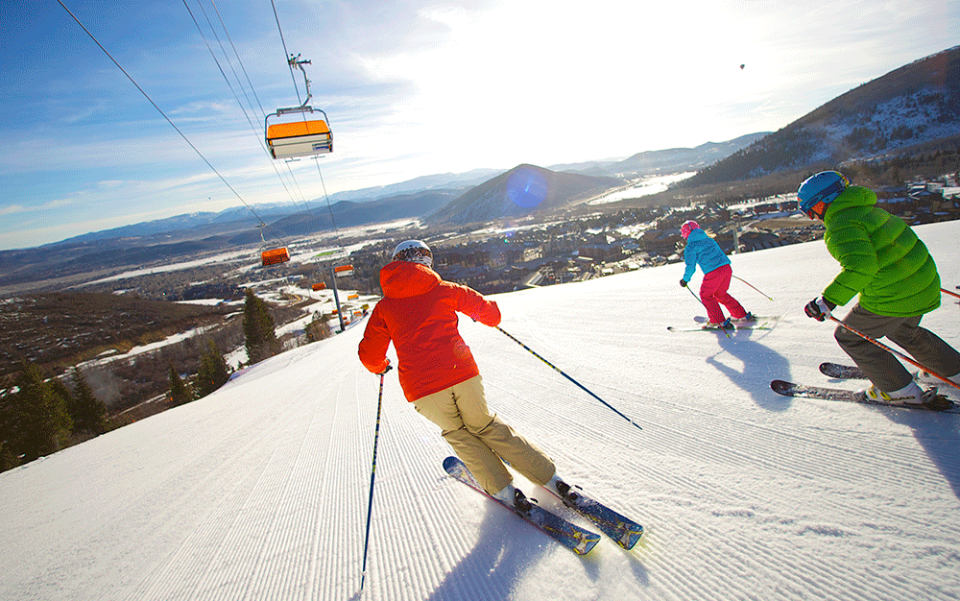'It’s not a race to reopen': major ski resort delivers blow to would-be guests this summer

Vail Resorts will not be rushed into reopening its resorts as skiing recommences in the mountains of America and Europe
The head of ski resort giant Vail Resorts has said he will not follow the lead of other ski areas and reopen for summer skiing despite demand and permission to do so.
Rob Katz, CEO of Vail Resorts, has told employees and guests in a public letter that safety and trust are more important than rushing to reopen resorts. “Our goal is not to win the race to reopen, it’s to look back one day with great pride in our track record on safety,” he said.
As the coronavirus pandemic forces the world to adjust to a new normality many in the tourism trade have been watching Vail Resorts, which has led the field in major ski resort development in recent years, to see how Katz and his team would respond. His decision to not reopen for summer skiing in Canada and America will have left many shocked, but visitors interested in non-winter activities like hiking and mountain biking can breathe a sigh of relief.
“It’s hard to put any firm dates around anything right now, given how new information and guidance comes out every day. But our hope is to have our lifts turning, at all of our resorts, by late June or early July and be welcoming people in all our lodging and retail stores by that time as well,” said Katz.
This includes resorts in North America, such as Vail and Keystone, that operate in summer for activities such as mountain biking, hiking, golf and climbing, as well as ski areas in the southern hemisphere at the Australian resorts of Perisher, Falls Creek and Mount Hotham. It’s hoped these will reopen for skiing and snowboarding with new safety measures in place, which will provide a blueprint for European, American and Canadian resorts to follow next winter.

While three of Vail’s resorts, Whistler Blackcomb in Canada, Breckenridge in Colorado and Heavenly in California would all usually offer snow sports well into the summer months, this year Katz confirmed the shutters will remain firmly down on the pistes until the winter snow starts to fall.
“As much as I would love to get a few last turns this season, we have made the decision not to reopen this spring,” said Katz.
The news comes as other, smaller resorts in America and glacier resorts in Europe have already reopened, as lockdown measures are eased. Skiers in Arapahoe Basin, one of the most popular ski resorts in Colorado, Crystal Mountain in Washington and Mount Baldy in California have been able to make the most of the remaining snow, albeit under restrictions.
“We know there would be tremendous enthusiasm to get back on snow one last time in North America. But we also know that enthusiasm would carry its own impacts, on us and on others – something we think will be more manageable for everybody in July, at which point we want those resorts fully focused on their new approach to summer operations,” said Katz.
Experts in the ski industry believe the summer season, both in the mountains across the Pond and in Europe, will provide a pilot period for new health and safety measures to be tested and social distancing procedures to be put into place, before the lucrative winter season kicks in – enabling businesses to be as prepared as possible before, they hope, the skiers and snowboarders return to the slopes.

Vail Resorts is prioritising these safety measures over the yearning to make powder turns, acknowledging they may be slower than others to reopen. “It’s our commitment to safety that led us to close our resorts on March 14. Not everyone will always agree when you put safety first – that’s what makes it so difficult. But, a willingness to do what’s hard, for the right reasons, has always been a part of who we are,” said Katz.
“Safety is about ensuring that we develop our own processes and procedures, taking into account local government guidelines, best practices from other companies and our unique knowledge and insight about our operations,” he continued.
Vail Resorts operates some of the world’s most iconic winter destinations, across the United States, Canada and Australia including Whistler Blackcomb, Beaver Creek and Vail. Its multi-resort Epic lift pass is the most established of its kind, selling over 700,000 to skiers and snowboarders across the globe each year. The pass covers over 70 ski areas around the world, including Hakuba in Japan and, in Europe, Verbier in Switzerland, the Trois Vallées in France and Madonna di Campiglio in Italy, as well as a huge number of North American favourites.
In recent years the company has firmly positioned itself as a leader in the ski world, in both terms of size and innovation. In 2015 it created the largest ski resort in the United States, Park City, when it connected Park City Mountain Resort with Canyons, forming a ski area spanning 7,300 acres and over the past six years it has reportedly invested more than $600 million in improvements to its operations – including new lifts and facilities at Canada’s leading resort Whistler Blackcomb, which it acquired in 2016. In 2017 it announced a new aim to cut the carbon footprint across all its resorts to zero by 2030.

Resorts under the Vail umbrella now face the difficult task of developing new Covid-19 safety measures across a number of different settings, from hotels to golf courses, shops to wedding venues, restaurants to lift stations – it’s something Katz emphasises cannot be rushed, insisting they will take their time to reopen. “We are reviewing the unique nature of each operation and business and will proceed to open each one on its own timetable,” he said.
Katz, who has spoken publicly many times during the pandemic, most notably to announce a donation of $2.5million to employees and their local communities, believes this slow and steady approach will reinstate confidence in travellers and allow people to trust in the resorts they visit in the future. “Trust is earned when you showcase that the health and wellbeing of your guests and employees are your top priority and you are willing to be patient to earn it,’ he said.
Undoubtedly this approach, and the impact of the pandemic on travel, will see visitor numbers fall. Fortunately, unlike many others in the ski industry, Vail Resorts’ strong financial position means it needn’t worry too much. Rather than his balance sheet Katz’s focus is on taking time, getting new systems right and hopefully bringing the joy back to the mountains in a safe way.
“In the months ahead, we will likely have fewer guests in our resorts than in times past,” admits Katz. “While that might feel disappointing, we need to view this as an opportunity for all of us to give each guest more of our focus, more of our attention and ensure that they truly have an Experience of a Lifetime when they are at one of our properties.”

